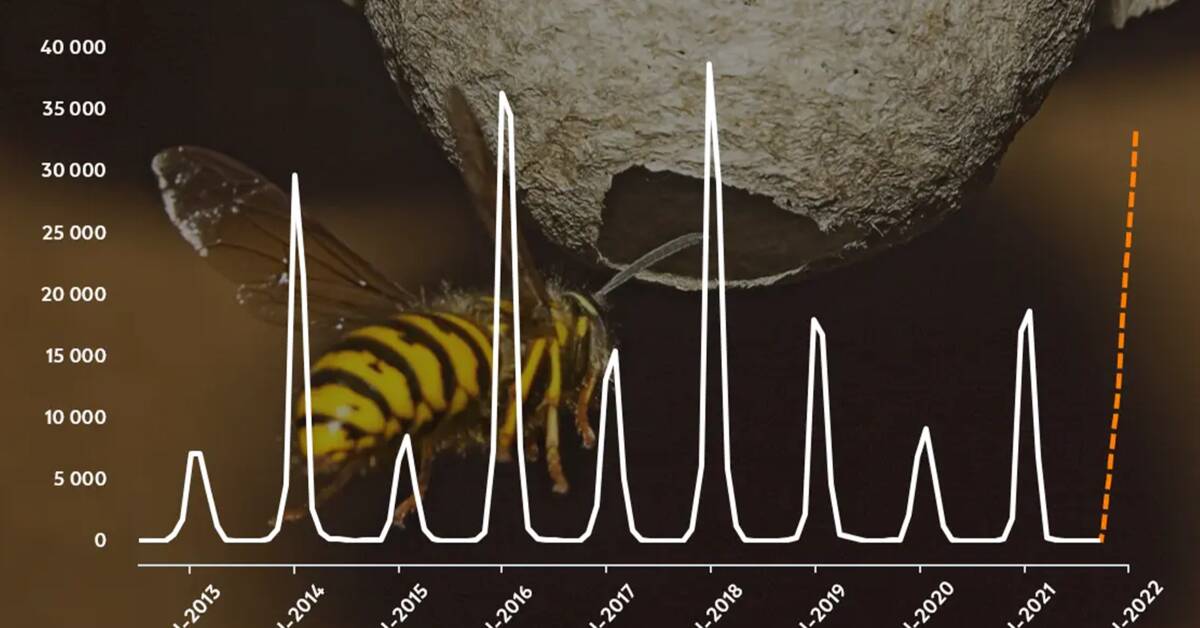Historically, wasp years usually occur every two years.
Experts do not know for sure what controls the intervals, but one theory is that during a summer with many wasps, there will be competition for habitat and food, which leads to fewer fertilized and overwintering wasp queens surviving until spring.
In 2020, however, the bi-annual trend was broken as it was not the wasp summer that experts predicted.
Håkan Kjellberg says that 2020 was the wasp-poor year so far.
- We are still unsure why this happened.
But a cold spring and a milder winter was probably a factor that permeated the whole country and that affected the number of wasps, he says.
Wasp-proof houses
Before the summer, Anticimex advises homeowners to secure their homes to wasps.
It's about everything from locating where wasps built nests in the past to blocking access roads to the house and keeping it clean around them.
- What you can do to protect yourself against wasps in the long term is to start thinking even before the wasps establish themselves - what did it look like last year and where did the wasps build their nests, says Håkan Kjellberg and points out that they tend to build nests on same place year after year.

